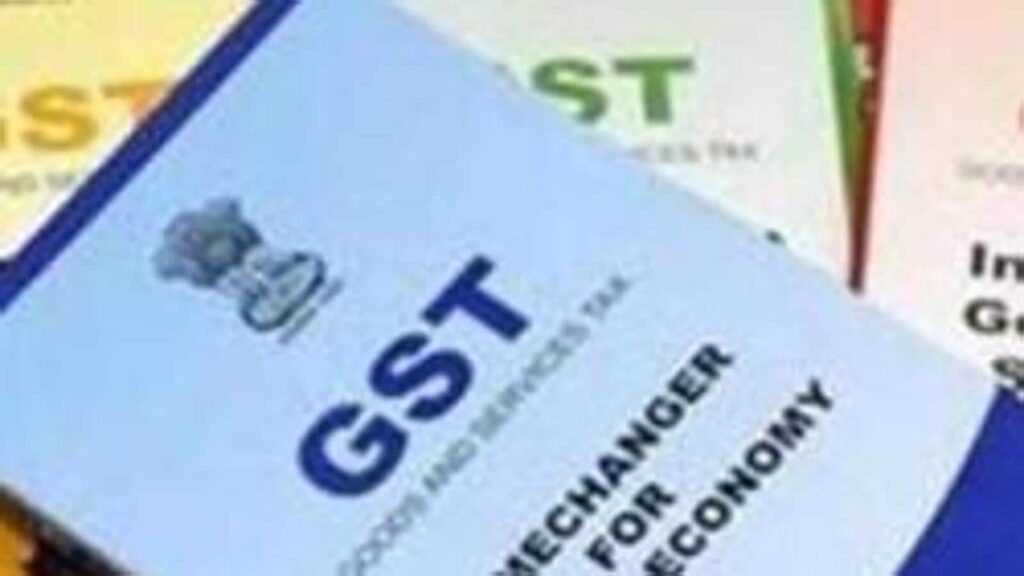GST collection rises 9% on domestic demand

NEW DELHI: The Goods and Services Tax (GST) revenue in October grossed over ₹1.87 lakh crore — the second highest monthly collection since the new tax regime started in July 2017 — on the back of robust domestic demand and stricter compliance, indicating a better-than-expected beginning to the second half of FY25.
 ₹1,87,346 crore. (PTI)” title=”The GST collection in the month saw jump in gross revenue at ₹1,87,346 crore. (PTI)” />
₹1,87,346 crore. (PTI)” title=”The GST collection in the month saw jump in gross revenue at ₹1,87,346 crore. (PTI)” />The GST collection in the month saw an 8.9% year-on-year jump in gross revenue at ₹1,87,346 crore, and surpassed the previous second-highest monthly collection of ₹1,87,035 crore in April 2023 despite strong global headwinds and single-digit growth posted by some of the key states such as Tamil Nadu, Telengana, Uttar Pradesh (UP), Jharkhand, and Karnataka. Chhattisgarh posted a 1% y-o-y contraction at ₹2,656 crore.
The highest collection ever record was ₹2.10 lakh crore in April 2024.
Net GST revenue in October 2024 also saw 7.9% y-o-y growth to ₹1,68,041 crore despite ₹19,306 crore overall refunds, posting an annualised growth of 18.2%, according to the government data released on Friday. Aided by tech advances, domestic refunds were quick and substantial, recording a 42.8% jump from ₹7,352 crore in October 2023 to ₹10,498 crore in October 2024.
A strong GST collection in October indicates robustness of the domestic demand, experts said.
They cautioned, however, that while GST revenues from domestic supplies were still strong posting a double-digit growth (10.6%) in October 2024 on an annualised basis, revenue growth from imports waned to less than 4%, signifying the adverse impact of global headwinds.
In its monthly economic report published on Monday, the finance ministry had also cautioned about disruptions in the second half (H2) of 2024-25 because of “escalating” geopolitical conflicts, “deepening” geoeconomic fragmentation and “elevated” valuations in financial markets of some advanced economies.
Deloitte India partner MS Mani said that revenue growth from domestic supplier in October this year is almost equal to the cumulative domestic demand for April-October 2024, indicating that “domestic demand has largely been uniformly high” during the year.
KPMG’s indirect tax head & partner Abhishek Jain said that the collections close to ₹1.9 lakh crore and increase in GST collections on domestic supplies by 10% plus depict the robustness of the Indian economy.
Saurabh Agarwal, tax partner at EY saw a potential slowdown in consumer spending in the short term but said the overall prospects were good. “Recent GST collections indicate a potential slowdown in consumer spending in India, which surged in the previous fiscal year. The single-digit growth signals a cooling-off period,” he said.
“The collections made in this month on account of festive season, particularly the performance of the automobile sector, will be crucial in determining the short-term trend. While the festive season is expected to boost collections, the overall outlook for the near future remains cautious… The long-term prospects for GST collections remain promising due to India’s expanding consumer base and the government’s pro-growth policies,” he added.
Experts, meanwhile, expressed satisfaction over the GST administration getting increasingly efficient as reflected in timely refunds that help small businesses by unblocking their working capital.
“It is encouraging to see a significant surge in processing of GST refunds in this month,” Jain of KPMG said.
“It is interesting that the domestic refunds in October have shown a sharp increase of 43%, while the cumulative (April-October 2024) increase is only 8%. This could indicate the stabilisation of the refund process during the past few months and the reduction in refund rejections due to interpretative issues,” Mani said.




